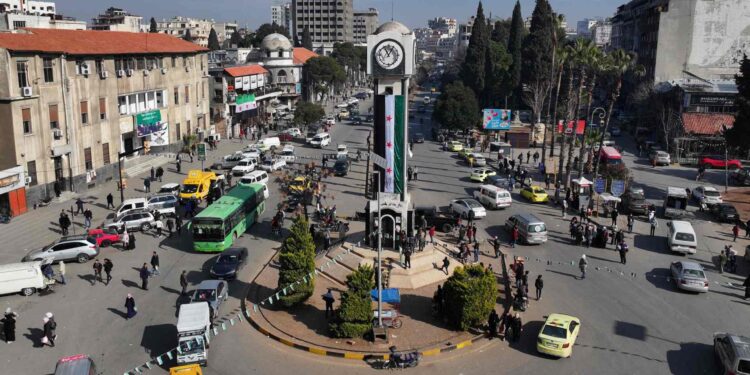Al Jazeera Net correspondents
DamascusDozens of companies, factories, and projects owned by businessmen close to the ousted Bashar al-Assad regime in Syria have stopped working since December 8, which led to hundreds of employees in the Syrian private sector being ignorant of the fate of their jobs, which they relied on to support their families in the country. My living situation has been the most difficult since 2011.
Commenting on this issue, Syrian Minister of Economy Basil Abdel Hanan told Al Jazeera Net, “The workers and employees who work for companies and industrial facilities affiliated with the men of the criminal regime have no connection to the acts of corruption and crimes committed by this gang and its associates.”
The Minister appreciates “the state of injustice, deprivation and poverty that the Syrian people faced as a result of the men of the criminal regime’s control over the country’s economy and its capabilities,” stressing that “these workers and employees continue to work in the majority of these sectors.”
As for the companies and factories belonging to the men of the former regime that have stopped working, Abdel Hanan points out that there are “legal committees specialized in studying the conditions of these companies, so that they can be restarted, developed, and employ their workers.”
Fate unknown
Although many companies and factories belonging to businessmen close to the regime have partially returned to work about a month ago, there are still companies, factories and projects that have completely stopped working.
Riyad R. (42 years old), a civil engineer and supervisor of several projects belonging to the businessman close to the regime, Khaled Qaddour, says that his work and the work of his colleagues and more than 150 workers in several construction projects in the town of Yafour, west of the capital, have stopped working since the fall of the regime on the eighth of May. Last December.
He added in an interview with Al Jazeera Net, “Most of the employees and workers who were working for these projects do not have a source of income other than their daily or monthly salaries that they earned from their work in these constructions.”
The spokesman pointed out that stopping these people from working overtime may lead to a “humanitarian catastrophe,” especially since they have no other source of income.
For her part, Bushra said: Kh (26 years old), a public relations employee at the Syrian International Company for Artistic Production, affiliated with the businessman close to the regime, Muhammad Hamsho, said that the company has completely stopped working since the first day of the fall of the regime, and that she does not know whether it will return to work or not in the foreseeable future.
The twenty-year-old girl added, in an interview with Al Jazeera Net, “I have no other source of income other than the salary I used to receive from the company. I have many responsibilities and I do not know how I will fulfill them. It seems that the entire artistic production sector has stopped working, so I fear the future very much.”
An informed source from the industrial city of Adra, northeast of Damascus, told Al Jazeera Net that companies and factories owned by businessmen close to the regime have completely stopped working, such as “Sinalco” for manufacturing and distributing soft drinks, and “Siamco” for assembling cars, owned by Muhammad Hamsho. The Iranian “First Glass” company for manufacturing glass, “Middle East” for manufacturing electricity cables, owned by Tarif Al-Akhras, and “Hadid Factory” for metal industries. Owned by Muhammad Hamsho.
Slow return
Many companies, factories, and facilities owned by businessmen close to the former regime were subjected to theft, vandalism, or destruction of documents by unknown persons on the eighth and ninth of last December.
Although these facilities returned to work at the beginning of this month, they still need restoration and re-equipping their departments with stolen or damaged equipment.
Raghad Al-Najm (27 years old), a student affairs employee at the Syrian Private University (SBU) in the Damascus countryside, says that the university’s employees returned to work normally a few days ago.
However, the university, which is owned by Ihab Makhlouf, a cousin of the ousted President Bashar al-Assad, had its offices and departments subjected to theft, vandalism, and documents being destroyed by unknown persons. Raghad al-Najm added, “Nevertheless, we returned to work slowly, through which we inventory the stolen items and calculate the losses and missing items while awaiting re-equipment.” The offices are equipped with the necessary equipment to serve students to the fullest extent.
In a related context, Khalil Shehadeh, director of the visual design department at Milkman Company, which was seized by Rami Makhlouf, the cousin of ousted President Bashar al-Assad, said that they returned to work normally as of this month.
The new management in the company addressed many of the restrictions that were imposed on employees, such as working on Saturdays, and deducting and reducing salaries for no reason.
It is noteworthy that businessmen close to the former regime, in partnership with people from the family of the ousted President Bashar al-Assad, controlled most of the Syrian private sector, by monopolizing areas of work in it.



